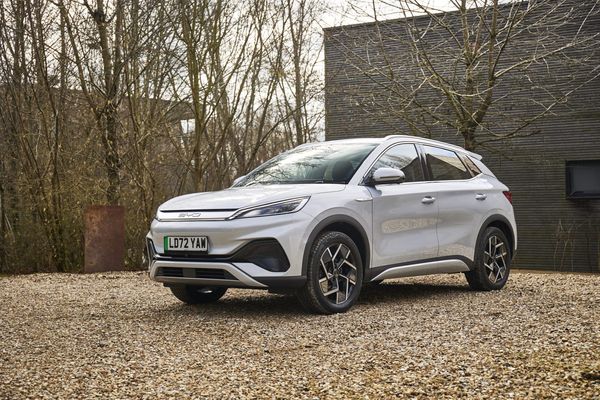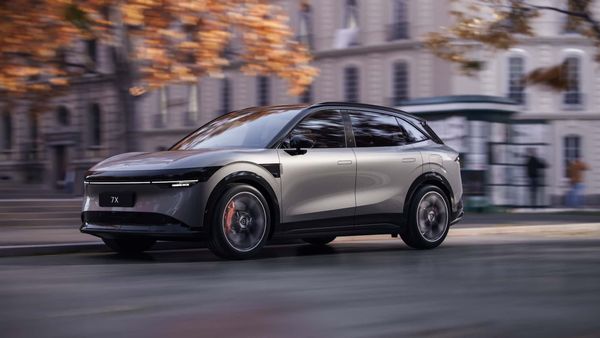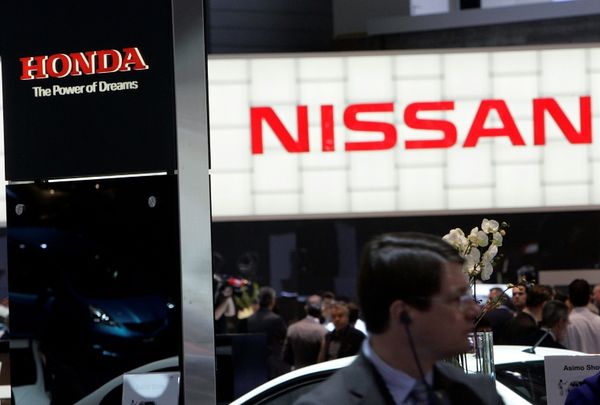
Even in a car market as EV-crazy as China’s, some auto executives aren’t completely convinced by electrification.
Gui Shengyue, CEO of Geely Automobile Holdings, one of China’s largest automakers, believes that internal combustion engine (ICE) cars are going to be a key part of the company’s business. “As a carmaker, you will lose a profit growth engine if you do not make petrol cars,” Gui told the South China Morning Post in an interview published Wednesday, noting that EVs “do not entirely reflect” the car market.
Geely Auto sold 1.97 million cars in the first 11 months of 2024, close to its annual sales target of 2 million. Around 777,000 of those sales were “new energy vehicles,” a Chinese term that includes both battery electric vehicles and plug-in hybrids.
While some of its electrified models are performing well with Chinese consumers, Geely is still dwarfed by the biggest player in China’s EV market—BYD, the market leader, which sold 3.8 million new energy vehicles between January and November.
Caution on going all in on EVs
Gui isn’t the only car executive to be cautious over the EV shift.
Toyota chairman Akio Toyoda is a long skeptic of the push for battery-powered electric vehicles, instead supporting a “multi-pathway” approach that includes hybrid engines and ICE cars that run on alternative fuels.
Other global automakers are scaling back their ambitious EV plans as demand cools. In May, Volkswagen said it would produce more plug-in hybrids in response to slower demand for battery EVs. In July, GM walked back its production target of 1 million EVs by the end of next year. Ford also shrunk its EV ambitions in August, canceling plans for an electric SUV.
Still, Gui’s skepticism is novel in China, whose car industry has radically shifted to embrace EVs. China accounted for 70% of all EV sales in November, according to data from research firm Rho Motion.
Last year, China overtook Japan as the world’s largest auto exporter, in part owing to its affordable EVs.
Yet petrol cars are still a major part of China’s car sector. In addition to fulfilling domestic demand, Chinese carmakers are exporting petrol cars to markets that have yet to embrace EVs, like the Middle East, Latin America, and, increasingly, Russia. Chinese car manufacturers, including Geely, have rushed to sell petrol cars to Russian consumers to replace Western automakers that left after Moscow’s invasion of Ukraine.
But Geely’s Gui still expects petrol cars to change with the times. Petrol cars will “have to be fuel-efficient to support the global efforts to reduce emissions,” he told the South China Morning Post. “They will be made more intelligent, like electric cars,” he continued, referring to the new technology found in China-made EVs.
Fortune has contacted Geely for comment.
Geely’s sprawling empire
Geely is part of a sprawling auto empire owned by Zhejiang Geely Holding Group, No. 185 on Fortune’s Global 500 and founded by Li Shufu in 1986. Geely Automobile Holdings is the group’s Hong Kong–listed arm.
Geely produces several EV brands targeting different segments of the Chinese car market, including Zeekr, a premium brand that tries to compete with Tesla and local EV startups like Nio and Xpeng. Zeekr raised $440 million in an IPO on the New York Stock Exchange earlier this year, a rare U.S. listing for a Chinese company.
Zhejiang Geely Holding Group also owns the Swedish carmaker Volvo. In September, Volvo scrapped its plans to only sell electric cars by 2030.
Both Geely Auto and Volvo own stakes in Polestar, a Swedish manufacturer dedicated to EVs. Polestar has struggled to meet sales targets amid a slowdown in the broader EV market. The company replaced its CEO in October, appointing Michael Lohscheller, a veteran car CEO, to the position.
Geely also has a 49.9% stake in Malaysian automaker Proton, which debuted its first locally made EV this week in a launch ceremony attended by Malaysia Prime Minister Anwar Ibrahim.
Last week, Ji Yue, an EV joint venture between Geely and Chinese tech company Baidu, admitted that it needed to restructure its operations to stay afloat in China’s fiercely competitive car market. The company then took to social media to reassure customers that it would continue to deliver cars, even as videos of employees challenging the CEO spread on social media.
On Friday, both Baidu and Geely announced that they would help Ji Yue make key payments and ensure delivery of after-sale services, according to Caixin.










